Wellbutrin and Insomnia: Can Wellbutrin Cause Insomnia?
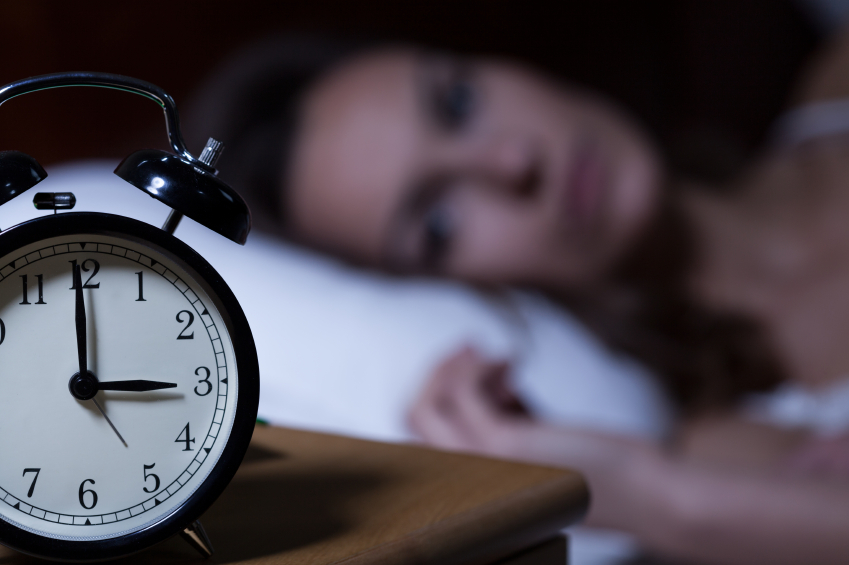
Wellbutrin and Insomnia: Can Wellbutrin Cause Insomnia?
You may have what people call wellbutrin insomnia when you experience insomnia as a result of taking the anti-depressant Wellbutrin (bupropion).
The drug itself is intended for people suffering from depression.
Taking Wellbutrin, either in immediate release (IR), sustained release (SR) or extended release (ER) forms ensures that the patient’s neurotransmitters (brain’s chemical messengers) are active and are able to relay messages to other nerves.
The brain thus becomes highly active affecting cognition, apathy, tiredness and other executive functions. The increased activity of the brain resulting from taking the drug makes it highly effective against depression but it results in insomnia and reduced sleep efficiency, especially when ingested at bedtime.
Since depression is already one cause of insomnia, taking the Wellbutrin drug increases a patient’s chances of experiencing insomnia. You thus need to make a decision whether to continue taking Wellbutrin for their depression (which some say is a pretty effective treatment) and simply manage the insomnia that may occur as a side effect. Visiting your doctor is advisable if you want a lesser dosage if the insomnia becomes unbearable.
Wellbutrin insomnia may be considered as transient insomnia because you experience insomnia only while under the influence of the medication. Once the depression is cured and you no longer need to take the drug, then the insomnia goes away.
However, it may be difficult to differentiate if you’re experiencing the insomnia primarily because of the depression or if it’s a result of the medication. The only thing to do is to treat it and manage it.
Managing wellbutrin insomnia is practically the same as treating regular insomnia.
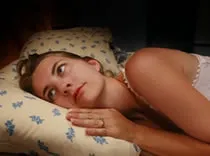
- You need to avoid added stress because it will only set your mind thinking and with the added effect of the Wellbutrin, you really won’t be able to sleep at all.
- Avoid drinking caffeinated drinks before going to bed. An overload of caffeine raises your activity level too.
- Make sure that your sleeping environment is comfortable and relaxing so that everytime that you enter your bedroom, you will immediately feel at ease and you can feel your mind slowing down and getting ready to sleep.
- Keep the noise level down and the lights dimmed and remove all other distractions like TV’s, computers and videos from the room so you won’t be tempted to engage in these kinds of activities before going to bed.
- Adhere to a regular sleeping pattern and schedule. You need to sleep at the same time every night and wake up the same time the next morning. This will condition your body clock to remember the kind of sleeping schedule that’s conducive for treating insomnia.
- Create a nightly ritual, like having a warm bath before going to bed, reading a book until you get sleepy, listening to soft music to calm your senses and then only lie down on the bed when you’re really feeling sleepy. That way, your body will recognize your lying down as a signal for sleeping.
- Schedule your medication during the day so you will have less problems sleeping at night.
Insomnia causes a lot of other conditions and is a sleep condition that affects most of the population, and can vary in its severity as well as its duration.
It can last for a few nights or even a few months, and can have differing effects on individuals.
Here are some facts about insomnia.
- Chronic insomnia can cause people to find it difficult to fall asleep or stay asleep, and it can occur for a number of different reasons.
- Insomnia is considered a sleeping condition instead of a sleeping disorder, since there is usually an underlying cause that results in insomnia.
- It can occur from high stress levels, anxiety, physical problems, or even mental problems, and can even result from behavioral factors such as excessive caffeine, alcohol, drugs, or other substances. It is a sleep condition that is marked by the inability to fall asleep easily, and/or sleep at all. There are a number of causes why this condition may occur.
- Culprits include various types of sicknesses, sleeping too much during naps, medications, and not going to bed when you should and also depression.
Symptoms
The following symptoms are often present when it comes to experiencing insomnia :
* Complications in falling asleep successfully
* Issues in staying asleep throughout the night
* Waking up and feeling as if you have not slept at all
* This may result in depression
* Various types of illness
* Complications in falling asleep successfully
* Anxiety is often common when an individual experiences insomnia
* Mood swings are often present
* The need to indulge in caffeine
* Headaches mild to severe
Statistics in studies done on individuals who have insomnia have concluded that at least one person out of every three individuals suffer from a mild to severe case of insomnia on a daily basis. I have suffered from it for many, many years. It seemed to go hand in hand with my diagnosis of fibromyalgia when I first started experiencing it.
The best insomnia treatment is determining the underlying factor that is resulting in the inability to sleep properly, and make behavior changes in order to regulate the internal clock.
Sometimes medications are prescribed to help the onset of sleep and to help one sleep through the night, but they can result in dependency if the underlying cause is not treated.
Maintaining a regular, uninterrupted sleep schedule is another way to treat insomnia, since it offers the time and location to get a full night of sleep.
Some insomnia causes include past poor sleeping habits, interruptions that can alter sleeping habits, or anxiety from knowing one has to wake up in only a few hours, so allowing oneself to get a full night of sleep is the best way to tackle sleeping problems.
Mattresses also influence your sleep patterns. Check best mattresses to help you make the best mattress choice.
Types of Insomnia
There are 3 different types of insomnia. Insomnia is a symptom of a sleeping disorder characterized by difficulty falling asleep and staying asleep. It is 1.4 times more prevalent in women than men.
-
Transient lasting from days to weeks caused by severe depression, stress, another disorder and timing of sleep.
-
Acute – unable to consistently sleep well and lasts from 3 weeksto 6 months.
-
Chronic insomnia goes on for years. It can be caused by a number of factors.
There are also other types of insomnia i.e. the secondary insomnia.
Secondary Insomnia
Secondary Insomnia is different from primary insomnia because it usually caused by directly certain illnesses including the following:
- Heartburn
- Pain
- Asthma
- Hot flashes
- Menopause
- Enlarged prostates.
- Depression
- Cancer
- Asthma
- Arthritis
- Alcohol or caffeine can sometimes cause secondary insomnia.
Acute Insomnia
Acute Insomnia is mostly tied down to emotional issues.People suffering from acute insomnia have short-term insomnia. Acute unable to consistently sleep well and lasts from 3 weeks to 6 months.
Emotional issues that can cause acute insomnia include the following:
- Illness
- Mental Stress(Moving, Death, Loss of Job etc)
- Enviromental issues such as exposure to light and extreme temperatures.
Transient Insomnia
As the name suggest this kind of insomnia comes and goes, depending on the periods when the individual has sleep problems. Transient lasting from days to weeks caused by severe depression, stress, another disorder and timing of sleep.
Chronic Insomnia
In contrast with acute insomnia, chronic insomnia describes long-term sleep disturbances. Insomnia lasting at least three nights a week for more than a month are generally classified as chronic insomnia.Chronic insomnia goes on for years.
Common chronic insomnia causes are:
- Stress
- Depression and
- Any sort of pain
Whatever form of insomnia you have it can be managed and even cured.
Insomnia symptoms and diagnosis
One of the most obvious symptoms of insomnia is difficulties in falling asleep. Often this is linked to an anxiety disorder.
Some people experience nocturnal awakenings or middle-of-the-night insomnia, which is often connected to pain disorders or illness.
Others awaken very early in the morning, known as early morning wakening and this can be a symptom of clinical depression It is often difficult to get back to sleep or maintain a continuous sleep pattern during the night.
Diagnosis
If you have a problem in falling asleep or staying asleep your doctor can refer you to a sleep clinic where there are experts in sleep medicine to help you.
Patients who have trouble getting to sleep may have a Circadian rhythm disturbance. However, sometimes people are wrongly diagnosed with insomnia when what they in fact have is delayed sleep phase syndrome or another sleep disorder.
What are the long term effects of Insomnia on the brain, body and health?
On of the major long term negative side effects of insomnia on the body is sleep deprivation. This can affect an individual physically and psychologically and cause detriment to one’s health. Other symptoms include weakened immune system, low self esteem, memory loss and weight gain.
Long term insomnia can develop over time to become serious health problems such as diabetes, obesity, depression and cardiovascular disease.
Mental ability, performance and productivity are all affected and quality of life is impaired. Insomnia is therefore a serious disorder that can lead to major problems. One noticeable effect is lack of self esteem. But surprisingly it has been found that physical appearance is not affected.
Loss of sleep can lead to obesity with a gain in waist circumference and BMI (Body mass index) as lack of sleep encourages the person to eat due to hormone changes. This involves the production of a hormone called Ghrelin which increases appetite.
Correspondingly, less Leptin which suppresses appetite is produced.
Long term insomniacs face almost double the risk of becoming obese, says Professor Francesco Cappuccio of Warwick Medical School.
Getting good restful sleep can lead to corresponding weight loss and normalisation. In fact getting a good night’s sleep on a regular basis can help you lose weight. Even children as young as five years old can be affected in this way from lack of sleep.
Memory Loss
Sleep deprivation arising from insomnia damages the memory. At the Harvard Medical School Dr Jeffrey Ellenbogen discovered that “sleep protects memories from interference.” In fact a student has more chance of retaining information if he or she falls asleep after learning a new skill or studying for an exam or test.
If on the other hand he or she just continues with daily activities there will be a 44% less chance of retaining the information. The bottom line is that getting good sleep, aids the memory - while losing sleep damages it.
Intellectual impairment
There is no doubt that lack of sleep can damage intellectual ability and performance, researchers at the University of Virginia have found. Children have demonstrated impaired cognitive function when they have missed out on sleep.
Physical impairment
Lack of sleep can negatively affect coordination, clumsiness and tremors and motor functions, delayed reaction time, reduced endurance and cardiovascular performance. Fatigue is inevitable.
Insomnia in children
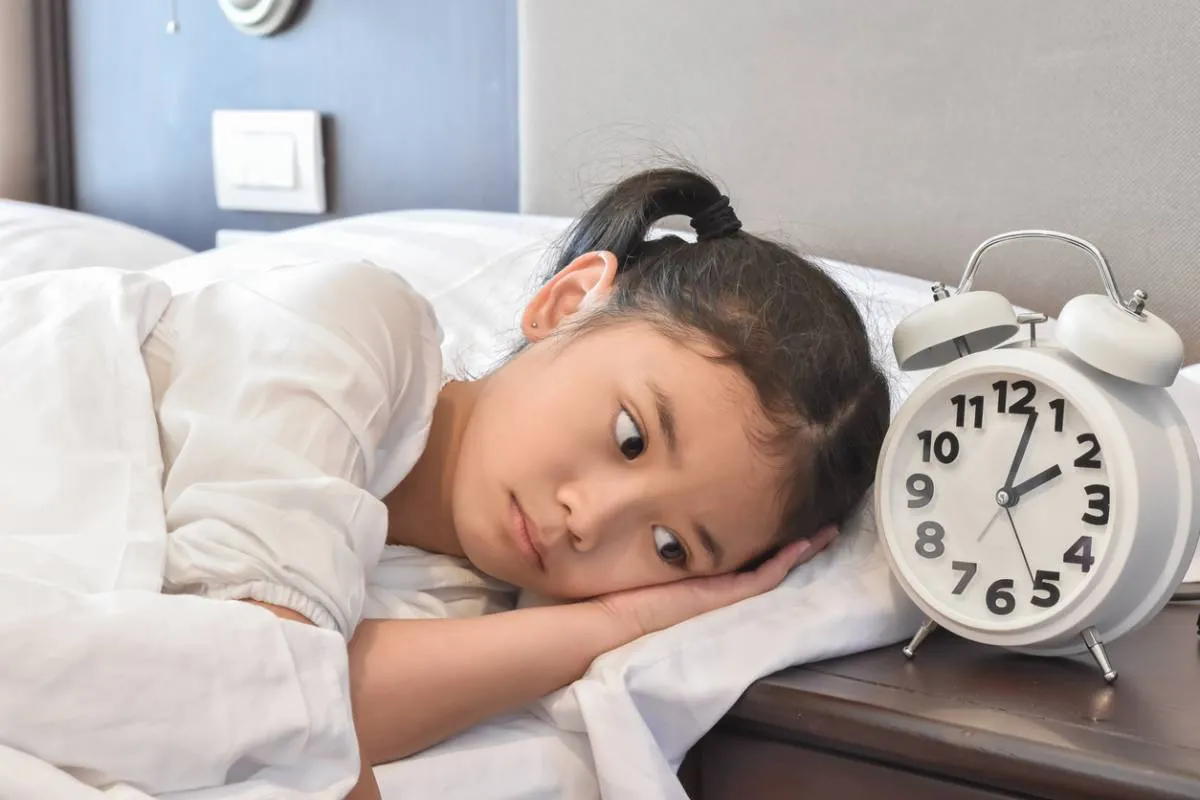
Insomnia in children is not uncommon. As your child grows the less he or she sleeps. Like adults sleep in children is regulated by the circadian ‘clock’. This clock is located in the suprachiasmatic nucleus (SCN) of the hypothalamus.
This internal clock is regulated by a number of factors including the day/night cycle.
When your baby is 6 months, s/he sleeps a lot but by the time he or she is 6 they sleep only at night.
By the time your child is an adolescent he or she sleeps only 8 hours in 24 hours.
Insomnia in children can cause them not to get enough quality sleep. Their symptoms can include hyperactivity, low mood, aggressiveness, mood swings and irritability, shortened attention span and memory problems.
Causes of Insomnia in children
Ten percent of healthy children have sleep related problems (that is an offset of delayed sleep onset and sleep maintenance problems).
One of the major factors that leads to insomnia in children is the environment. Everywhere around are images of violence, pornography and crime. Never before has these ideals been flaunted so publicly and proudly.
Bullies in school, violent video games and wild music are causing children physiological distress that in turns has insomnia as a symptom. Alcohol, drugs and other harmful substances are seriously affecting the younger ones, and they seem to be the only refuge children take up to relieve themselves of the mental distress they are experiencing. They communicate less with parents and alienate counsellors.
If a child is going through insomnia due to any of the causes listed above then a change of habits and values is needed. Other issues that might cause insomnia in children include a change of environment, divorce or even a death in the family.
Taking care of children can be much work and children love routine. They want to go bed at particular time, wake at another and eat at another time and so on. Break that routine and there can be problems.
Children with sensory deficit and children with learning disability syndromes also usually have serious sleep problems. Insomnia in children could also be a symptom of depression or attention-deficit hyperactivity disorder.
Types of Insomnia in Children
Like adults children might have different forms of insomnia. They include transient, acute and chronic insomnias. In children, transient and acute insomnia may be caused by illness, stress or even medications. This type of insomnia could occur 3 or 4 times a week.
Acute Insomnia is more regular and occurs almost every night. Chronic insomnia is a condition when your child is unable to sleep at all, even during the day. At this point you should seek immediate medical attention for that child.
Treatment for Insomnia in children.
- Diets- As a parent you would have to plan your children’s eating pattern properly. Planning well for their eating habits will help them grow properly and avoid sleep related problems.
- Exercises – Yes, children should exercise no matter how little. I know kids play around a lot and have lots of physical movement but they should be encouraged to engage in stretch exercises for example. This will help the body relax.
- Relaxing Activities – Most of us just leave our kids to handle themselves and explore the world on their own. If your child spends long hours staring at the T.V screen or playing video games especially the violent ones or listening to heavy music like metallic rock, this could affect the child’s psyche. This is not good for your child’s development. This could lead to insomnia. It is not wise to withdraw the child from such activities at once, withdrawal should be done gradually. Since nature hates vacuum you could try taking your child for a walk, visiting a close relative together, going to the movies, and even go shopping together instead. Spending more time with your kid will help reduce negative habits that can affect your child’s sleep and finallly cause one form of insomnia or the other.
The Role of Melatonin
Melatonin is an endogenous hormone. It is chemically related to serotonin. The pineal gland in the midbrain produces it. It can be used to treat insomnia related issues in children.
Melatonin can be used in treating insomnia in healthy kids and children with physical or learning disabilities. It is safe to use melatonin in the short term but long term usage has not been ratified by health professionals.
Melatonin is being used to treat sleep issues in children and has recorded a huge success. Though melatonin is used to treat children with autism spectrum disorders and insomnia, it has also been used to treat healthy kids with insomnia of any form.
It is best to avoid drugs wherever possible and to use natural commonsense ways to approach insomnia in the child. Perhaps remove the TV or computer from the bedroom, keep consistent routines and regular bedtimes and indeed stop stimulating activities a half to one hour before bedtime. Caffeine should be avoided. You can teach the child relaxation methods including diaphragmatic breathing and progressive relaxation, visual imagery and meditation.
Insomnia in pregnancy
Insomnia and pregnancy are like a twin. Insomnia and pregnancy go together most times. Experts agree that insomnia during pregnancy is a normal event.
The joy of conceiving alone can take sleep from you, added to the fact that you have to go to the bathroom more often as you experience body aches, cramps and even loose the ability to find a comfortable sleeping position. This could induce transient and sometimes chronic insomnia.
Let me say at this point that first time moms-to-be are more apt to insomnia and related disturbances. Thinking about issues like finance, how good a parent you can be, the health of your baby or even miscarriage can become damaging to your health and eventually cause you to loose your sleep.
Heartburns are also another cause of insomnia. Pregnancy causes the hormones in the body to change, and this could have effects on the level of acid production and muscles in the digestive tract. Another cause of heart burn is that the uterus and fetus grow and the fetus puts pressure on the stomach and forces acids up the esophagus, this is also known as acid reflux.
[Tweet “Relax: #Insomnia during pregnancy is a normal event. #Pregnant #NewMom”]
Itching is another issue. A woman’s skin stretches during pregnancy especially in the navel area and this could cause itching.
Pregnancy comes with much discomfort, from pelvic pain to headaches, bloating, leg cramps, back pain, water retention, gas and nausea. All of these can cause insomnia and pregnancy can become very complicated.
For most women these conditions only persist for the first trimester of pregnancy and the later days get a little less stressful. There are a number things that can be done to relieve these conditions and help you sleep better.
- Self -Hypnosis – There are several wonderful self-hypnosis products out there. All you need to do is clear your mind and slow down your thoughts and listen to the deep voice and you should fall asleep before you know it
- No Caffeine – Yes avoid it like a plague especially at night.
- If you experience heart-burn you might one to try a glass of warm each night just before you sleep.
- Relax- There could be so much to think about during pregnancy but you have to learn to clear your mind and relax. If you can’t sleep don’t just lay in bed. Stand up and do something like knitting or reading a religious pamphlet or watch some boring documentary on T.V. The whole aim of this is to help you relax and clear your mind.
- Exercise and massage- You could try out some light exercises to help stretch your body and soothe your joints. You could also ask your partner to give you a good massage.
- Warm Bath- Try a warm bath. This works well just before sleep and at midnight too.
- Pillows. . .pillows – You need lots of pillows, especially those designed for pregnant women. Pillows could help you find a comfy position to sleep in.
- Audio Therapies- Audio Sleep Enhancement does help. One of the recent breakthroughs in this field is the Isochronic pulse audio therapy.
- Insomnia Drugs- Avoid them. As you know during pregnancy the level of drug intake should be strictly monitored by your doctor. Most insomnia drugs contain antihistamines, which can cause drowsiness.
- Herbal Remedies – There are several of them out there you could try but you need be careful and read the label carefully to know if it is safe during pregnancy.
Insomnia and pregnancy go hand in hand and it’s natural to lack sleep during pregnancy. You just have to cope with the symptoms for a while and always follow your doctor’s advice. If you cannot sleep a long period of time, then you do need medical attention and this should be gotten as soon as possible.
[Tweet “Insomnia and pregnancy go hand in hand and it’s natural to lack sleep during pregnancy. #Insomnia #Pregnancy”]
Overcoming insomnia in menopause
Menopause and insomnia do not have to wreck your life. They both co-occur due to the reduction and imbalance of hormones associated with menopause. They are usually inseparable as menopause will almost always bring on insomnia.
Also, when occurring together, they are characterized by having vivid dreams and waking up with a thumping beat. These two usually go together, in fact, is inescapable, and a symptom of the slowing down of a woman’s reproductive system.
The Menopause and Insomnia Factor
In menopause, insomnia is caused by a variety of factors. Deficiencies of calcium and magnesium–very common in menopausal women–can cause insomnia. Insomniacs typically complain of being unable to close their eyes or rest their mind for more than a few minutes at a time.
Menopause insomnia can be eased by taking a few sleep-inviting measures during the day. The best way to deal with menopause insomnia is to deal with the symptoms of menopause as best you can. While, menopause insomnia can be a problem but you can overcome it with persistence, natural remedies and good health habits.Hormones
Hormone fluctuations in the body of a woman is the biggest cause of menopause insomnia.
After the age of 40 (and sometimes before) you may have trouble getting or staying asleep because of these declining hormone levels, which impact your sleep/wake cycle.
Hot flashes and night sweats that wake you up and may require you to stay awake to recover or change bedding are also common at the onset of menopause.
Other health issues that wake you include:
- Thyroid problems
- Pain
- Breathing difficulties
What Can You Do About Menopause Insomnia?
- Your doctor may recommend hormone replacement therapy medication to supplement decreasing levels of estrogen in your body. See your doc about Hormone replacement and/or a sleeping aid. This is the only menopausal specific treatment for sleep disorder is hormone replacement therapy.
- Some women ‘learn’ to have insomnia and adjust their life around it.
- A proper diet and relaxation exercise are a few other treatments to help with your sleep disorder associated with menopause. Some relaxation techniques appear to work well for almost every woman experiencing this problem.
- Foods that are rich in tryptophan are highly recommended.
- Worrying about your menopause and insomnia will only make it worse.
- Keeping up or starting a healthy lifestyle with a balanced diet and regular exercise can also help your body deal with this problem.
Idiopathic Insomnia or Insomnolence: The Real Twist.
Idiopathic insomnia seems like a mouthful for a rare sleeping disorder.
Insomnia by itself is very common as it is most often associated with difficulty in sleeping, staying asleep and being able to sleep but not feeling very rested after it.
It’s easy to identify the symptoms of insomnia because everything points to not being able to sleep well regardless of its causes.
However, this kind of insomnia is slightly different. It usually starts from childhood and continues up to adulthood making it a lifelong condition.
Unlike regular insomnia which dissipates after a short time and only manifests under certain conditions, idiopathic insomnia is persistent and does not appear to be caused by physical, mental or even emotional triggers. Imagine having to suffer insomnia practically every night for the rest of your life.
That is what idiopathic insomnia is.
No Cause?
There are no known causes for this kind of insomnia. All the things that you know about regular insomnia don’t apply to this insomnia.
- It is not caused by sleep disorders.
- It is not induced by medical problems.
- It is not triggered by stressful events and circumstances.
- It is not initiated by the use of medication.
- It is also not an effect of excessive lifestyle behaviors.
No one knows for sure what causes it. Some believe that your body may have an overactive awakening system.
On the other hand, you may have an underactive sleep system. What is certain is that you will experience sleepless nights on a regular basis for the rest of your life.
Effects of idiopathic Insomnia
It can certainly be hard to believe that such a disorder exists. It may even be incredible that people who suffer from idiopathic insomnia are able to manage their lives despite their condition.
They may often have to contend with daytime tiredness and fatigue because they hardly get any sleep at night. They may also have difficulty focusing and concentrating because their mind did not get enough rest due to lack of sleep.
However, since they have had to contend with this condition from a very young age it is possible that they have adjusted to it and are able to carry on with their lives with minimal fuss.
Though in some cases, people have tried to treat themselves on their own without much success they end up being lured by the promise of alcohol to dull their senses and to help them sleep.
Others become addicted to sleeping pills because they see them as a way of initiating sleep and being able to sleep for longer periods of time. In severe cases, the patients themselves become depressed and attempt suicide to rid themselves of their condition.
Support for idiopathic insomnia may also be hard to come by since it does not affect majority of the population and that it is not passed on through genetics or heredity.
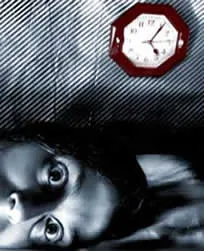
Coping with Idiopathic Insomnia
The thing about this insomnia is that it doesn’t have a cure. You just live with it, learn to cope with it and simply adjust and manage your life. The only thing you can do is manage the condition like you would with normal insomnia.
The important thing is to be able to fall asleep fast and regain a higher quality of deep sleep even though you may still experience short sleeping times.
- Try relaxation techniques so that your mind and body will be more willing to sleep and rest.
- Create a bedroom or sleeping environment that will be conducive to sleeping without any distractions like lights and noise.
- If it’s not possible to dull the lights, use eye covers or dark drapes for your windows. Noise may be tuned out by wearing earplugs.
- As much as possible, refrain from having any TV, videos or computers in the bedroom.
- Keeping your sleeping environment as comfortable and as calming as possible will make it easier for you to have a relaxing sensation which will then make it easier for you to fall asleep.
Doctors may at times try to offer medication to assist you with sleeping but you can’t afford to use them for the rest of your life. At the very most, you may use these sleeping pills for as much as 6 months only. Keep in mind that this can only keep the insomnia at bay and is not really meant as a long term solution.
Quitting alcohol insomnia
Alcohol Insomnia is a kind of insomnia that is induced by the side effects of taking alcohol hours before sleep.

Alcohol will make you pass out and will not give you deep sleep. Yes, you will sleep for a few hours and wake up feeling terrible.
Why?
Alcohol dehydrates your body and makes you uncomfortable and thirsty. Your REM sleep is disturbed and can you hardly get back to sleep.
When you sleep your body goes through sleep cycles, repeating the same pattern over and over again. This sleep cycle is important for deep sleep. Now, when you take alcohol before sleep, it totally distorts the sleep pattern and leaves you wide awake after for the rest of the night.
Your body has to compensate by producing adrenaline to compensate for the alcohol in your body. This also keeps you awake.
Alcohol and Sleeping Pills?
I have heard stories of people taking insomnia drugs with alcohol. The idea is that the alcohol will make the drug work better and you have a better sleep.
THIS IS A SUICIDE RECIPE.
Please avoid it.
Alcohol is a depressant and most sleeping pills contain depressants. The effects of using the two at the same is that they will slow down your breathing to an extent that this might become too much for your body to handle and you may pass into a coma or even die.
To deal with quitting alcohol insomnia:
- Stop or reduce your alcohol intake especially towards sleep time. One the principle of bed hygiene is to avoid hours before sleep food or drinks that can cause insomnia. The first thing on the list of “no touch” substances is Alcohol followed by Caffeine.
- Alcohol is addictive, but you can wean yourself of it for the evening periods if you try hard enough. Do it for your sleep.
- You can take herbal teas like fennel or chamomile tea to compensate.
- Or take light wine during your dinner.
Childhood Insomnia: Causes, Risk Factors, Symptoms and Treatment
It’s often hard to diagnose childhood insomnia especially since children have yet to establish their sleeping patterns.
very much like those in adults, except that the causes are so varied that it’s hard to really identify any of its symptoms.
However, as a parent, you must know that when your kids can’t sleep, your entire household can’t sleep too and it makes for very tired parents and very cranky kids.
How do you recognize insomnia in your children and what you can do to prevent it? What causes insomnia? What are the risk factors? Is there more than meets the eye?
The Insomnia Equation in Kids.
Babies and infants are still too young to experience insomnia, which can be characterized by difficulty in sleeping, difficulty in staying asleep and even feeling not well rested after being able to sleep through the night, seeing as they still need to develop sleeping patterns.
Babies haven’t yet learned the difference between night and day and so they follow no sleeping schedule.
They simply sleep when they’re tired and wake up when they’re hungry or wet. This thus becomes your responsibility to ensure that they start learning good sleeping habits, starting with keeping it light and active during the day and dark and quiet during the night.
This kind of conditioning helps in developing your babies’ sleeping patterns.
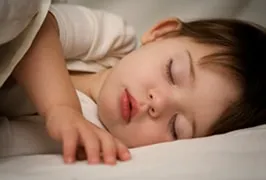
As these babies grow into toddlers and kids, it’s easier to notice whether they have childhood insomnia. It’s also easier to pinpoint just what causes kids to develop insomnia at such a young age. The number one cause is poor sleeping habits.
If you as parent don’t establish a regular bedtime routine, you will find yourself dealing with insomnia in your children.
It is necessary to create “quiet time” at least thirty minutes before the kids are ready to step into bed. Any roughhousing, either with you or your older children, will get them all worked up and will definitely make it hard for them to sleep.
Having a TV, video games or a personal computer in their rooms may also encourage them to sleep late, not to mention losing sleep over homework and other school activities.
Insomnia in children may also be caused by physical and emotional issues. For instance, if your child has asthma, he may be plagued by uncontrollable coughing and difficulty in breathing which will affect his sleep.
Young children may also still be bed-wetting which would mean getting up in the middle of the night to change wet clothes. It is also possible that young children may experience night terrors or separation anxiety which leads them to have insomnia.
Their fear and anxiety will wake them up, keep them awake and give them trouble going back to sleep.
Childhood insomnia may also be traced to simple things like sleeping in a room that’s too hot or too cold for the kids, losing their security object (like a blanket or a pillow), having too many people in one bed or conversely, being alone in a dark room.
Dealing with Childhood Insomnia
Reading through all these childhood insomnia causes may make your head reel but parents are already aware of them and probably have gone through them with their kids.
It’s better to take a look at each child’s case and take it from there.
If your child can’t sleep because he’s not ready to be alone in his own room, you may compromise by allowing him to cuddle with them or create a space for him in your room until he becomes ready to be by himself.
If he’s bothered by health conditions, then there’s no other solution but to treat these conditions and the insomnia itself will be resolved.
Your child’s bedroom needs to be developed into a quiet haven for sleep. As much as possible, minimize his sleep distractions and create slowing-down activities, like reading a book, for bedtime.
It is not advisable to give medication to treat insomnia in children, especially if it’s transient (short-term). The cause of most common childhood insomnia usually resolves itself in a short time and will work best with reconditioning and developing better sleeping habits.
Try to avoid giving your kids drinks with caffeine before their bed time to prevent them from becoming too hyperactive.
Try to determine if they are stressed with school which may also be a cause for their sleeplessness. Create a work or play space for your kids outside of the bedroom. This will maintain the bedroom as a place of rest and relaxation.
All of these things are simple enough to do and all it takes is just a little observation on the your part. Children are easy to decipher, what their needs are, what their anxieties could be.
If you understand your kids and are diligent with keeping a regular bedtime routine with them, their insomnia will be a thing of the past. Getting enough sleep for your kids ensures enough sleep for parents too.
Treatment for Insomnia
List of Insomnia Medications Names: Side Effects during Pregnancy and Depression
A lot of people experience insomnia so it’s inevitable that there will be insomnia medications in the market.
It can be terribly frustrating for someone who wants to sleep but finds out (regrettably) that he can’t. He may keep tossing and turning on his bed, trying all sorts of activities to lull his mind but to no avail.
He may even become more stressed if he has something important to do the next day, where he’ll need all the energy that he can get, which is why it’s imperative for him to experience his much-needed rest and sleep.
So what can a person do if he’s at the end of his rope and his insomnia is getting the better of him? Most likely, he’ll turn to insomnia medications – drugs for insomnia – so that he’ll at least manage to sleep when he wants to.
The only trouble is, there are way too many medications for insomnia that it may be hard to choose which one is best for your condition.
Over the counter (OTC) Medications for Insomnia

One of the easiest drugs for insomnia that you can buy is the antihistamine. It may serve as a sleeping aid for those with transient or short-term insomnia. Dipenhydramine is considered safe and effective as a sleeping aid as approved by the Food and Drug Administration.
However, it is entirely possible that you’ll be experiencing drowsiness until the next day.
On the upside, there is no risk that you’ll become dependent on these drugs should you take them regularly. However, the efficiency of the drug may be impaired as your body develops a certain immunity to the chemicals in them.
Another OTC insomnia drug is Melatonin supplements (Melatonex) that is available as a dietary supplement.
Melatonin is a hormone that helps regulate the body’s clock or sleep-wake cycle although the actual mechanism for inducing sleep is currently unknown.
An advantage of taking melatonin is that it does not impair your other functions, unlike antihistamines, which is why it is a good medication for insomnia and jet lag.
Prescription Medication for Insomnia

Benzodiazepines are the older hypnotic drugs for insomnia.
They generally allow you to fall asleep faster but you’re at risk of becoming dependent on the drug the longer that you take it.
They also have shown to cause you to feel sleepy during the day, because, although you are able to sleep fast, the quality of sleep that you get is poor.
Benzodiazepines decrease your deep sleep time so you may end up feeling like you haven’t slept as much as you should.
Examples of benzodiazepines are Dalmane, Restoril and ProSom.
The “newer” counterpart of the benzodiazepines are the nonbenzodiazepine hypnotic drugs. You may know these drugs as Lunesta, Sonata or Ambien and they are drugs that dull your brain’s activity so you can sleep.
These drugs appear to be improved versions of the benzodiazepines because they do induce sleep as well as provide continuous sleep to the user. They do not disrupt REM sleep though there is a possibility of making you become dependent on them.
These drugs are best taken when you’re ready to go to bed. People who are able to sleep for a full night should not be taking these because they can cause grogginess the next day.
What is important to remember is that insomnia cannot be cured. These drugs will only help you to fall asleep, will help you to remain asleep and give you that beauty rest that you’ve been craving. Most of these sedative-hypnotic drugs are also generally used for the treatment of transient insomnia although some of them may be prescribed medication for chronic insomnia.
Safety measures
It is highly recommended that you visit a doctor before self-medicating. Your choice of insomnia medication may react with other drugs that you are taking.
Pick only the sedative that you need for your sleep problem. If you have difficulty falling asleep, then pick a quick-acting drug like Ambien that will help you sleep faster but will not make you drowsy the next day. Drugs whose effects last longer are better suited for people who can fall asleep easily but have trouble remaining asleep and are always waking up in the middle of the night.
Keep in mind that taking sleeping pills should be the last resort when treating insomnia. There is a risk of becoming addicted to some of these chemicals and you’ll eventually find it harder to sleep without them. You’re not actually curing your insomnia, yet you’re acquiring a new addiction.
Start yourself with natural alternatives and work your way from there. It will also help if you simply stick to a healthy sleeping practice so that your body will be conditioned to sleep as soon as it senses that you’re in the bedroom. Make sure that you take the proper dosage because it’s your life on the line if you make a mistake with your insomnia medications.
Natural Remedies for Insomnia for Adults, Children and Pregnancy
The natural remedies for insomnia are varied and different things work for different people but you must first understand this; Insomnia is a symptom and not a disease.
Any remedy that you choose for yourself must be based on this fact, treating insomnia as a symptom.
Before I continue to review the natural remedies for insomnia, I must state that over the years I have received hundreds of questions from people suffering from insomnia and I have recommended a variety of remedies. One issue has always stood out in all the questions is, “Is there a natural cure to insomnia that really works?”
Just last year I stumbled on SLEEP TRACKS SLEEP OPTIMIZATION PROGRAM. To date 12 of my readers have tried per my recommendation and so far have no need for sleep drugs or supplements of any sort.
Only one person gave up on the program but later went back to it and she too is free of insomnia today. Since this page is about Natural Remedies for Insomnia and not the Natural Remedy for Insomnia I will have to talk about other remedies, if you are interested in the program read my Sleep Tracks Review for more information.
Now Natural Remedies for Insomnia can be broadly categorized as follows,
Nutritional supplements.
These are not drugs per say but are supplements that can be ingested after meal. What these nutritional sleep supplements do is to boost elements such as tryptophan and Melatonin in the body in cases where they are low.
Lack or insufficient supply of these elements in your body will cause sleep problems as they have a lot to do with how the brain tells the body it is time to sleep.
Melatonin Supplements
Melatonin is produced by the pineal gland at the back of your brain from the amino acid called tryptophan and it is used to induce sleep.
Sometimes for unknown reasons you might have a deficiency of melatonin and your sleep pattern is seriously affected. Melatonin Supplements help boost your melatonin levels so as to restore sleep. The supplements have had a huge rate of success and have little or no side effects. I have written extensively on melatonin supplements, click the link to read more.
5-HTP.
5-HTP also known as 5-Hydroxytryptophan is an amino acid, which is the main constituent of serotonin. And since serotonin is also a major component in inducing sleep, low amounts of it will cause insomnia and other sleep related problems. There are 5-HTP supplements available to help combat insomnia, but like most sleep aids they don’t work for everyone.
Herbal Remedies
There are many herbal remedies for insomnia, but you have to be careful how you use them as some of them can have very strong side effects. You should not use them with normal insomnia drugs, as this could trigger unforeseen results that could be devastating to your health.
Herbal remedies for insomnia include Chamomile, Passion Flower, Hops, Valerian, Corydalis and Lavender. Read my Herbal Sleep Aids for Insomnia page for more information on sleep herbs.
Exercise
The right exercise can help you gain sleep. Such exercises include, yoga, meditation, visualizations and autogenic training and they can can help decrease the build up of stress hormones that cause insomnia.
The sleep exercises should be done in the afternoon or early evening, because they raise body temperatures and raise adrenaline levels, and this will only come down till after about 5-6 hours. That should be about the same time you are going to bed, thus promoting deep sleep.
Dieting
It is advisable to eat heavy meals late in the evening. There are protein rich foods that contain the amino acid tryptophan; these include milk, tuna, nuts, whole meal bread and potatoes. Remember that tryptophan is used in the creation of serotonin which helps you relax and sleep.
There certain foods and liquids to avoid if you want good sleep. Here is the list.
- Caffeine
- Alcohol
- Chocolate
Sleep Sound Audio Programs
These are programs based on the brain waive entertainment technology. Brainwaive entertainment is designed to influence the electrical activity going on in your brain in the form of brainwaves. It’s meant to “entrain” them. This is done by using rhythms.
If you listen to a rhythmic sound for awhile — it could be anything, a drum beating at 5 beats per second for example — and concentrate on it, something will change inside of you. After a couple minutes your brain will start to sync itself to the rhythm, and generate more brainwaves that will vibrate at the same rate per second as the sound you hear. Your brain will mimic the wave of the repeating sound.
This has been the most effective method of combating insomnia as it is non-addictive nor does it come with any side effects.
The best Sleep Audio Program that has been effective for a lot of my readers is the SLEEP TRACKS SLEEP OPTIMIZATION PROGRAM.
You can try it for just two weeks for the price of $4.95 and if it works for you pay the full $73 price. I say this having seen its amazing results it is worth far more.
Home Remedies for Insomnia: Herbal Sleep Aids or Physical Therapy
There has been a recent rave over home remedies for insomnia as alternative for insomnia drugs.Research shows most adults do not sleep well and this affects their day time jobs.
These homes remedies for insomnia or herbal sleep aids have come to be trusted by ordinary folks and some of them have been perfected over the years and passed from generation to generation. Home remedies for insomnia can be broadly divided into:
- Herbal Remedies for Insomnia
- Herbal Drugs
- Physical Therapy
Herbal remedies
Below are lists of herbal remedies that I have come across over the years. I will not say which ones have worked for me but you can trust that if they are listed here, it is because so many insomniacs around the world have tried these remedies and they work.
The herbal remedies for Insomnia can come in different forms including, roots, teas, leafs, grass and so on. Here is a list of remedies you can try for your insomnia.
- Lemon Balm Tea – This is a very good sedative and it sooths the stomach well. You can put two to four teaspoons of the dried herb into a cup of boiling water.
- Eat 2-3 fresh onions before going to bed.
- Simmer Chamomile tea for 3 minutes and a bit of milk and 2 table spoon of natural honey.
- Add 1 teaspoon of lavender leaves to a cup of boiling water stir and drink.
- Take a teaspoon of honey with a glass of hot milk.
- Mix one teaspoon of honey, with a warm glass of spring water and fresh lemon juice.
- Valerian is a very good sleep aid, it reduces activity in the central nervous system. You can get valerian from your health food stores.
- Heat milk till it gets just before boiling point, then add 1 teaspoon of vanilla extract and 1 level tsp of sugar and sprinkle cinnimon on top and drink while hot. This one works like a charm.
- Grind: 5 carrots, spinach, 2 broccoli flowers ,2 leaves of dandelion, and one beet ,eat quickly, and go to bed.
- Hops is a sedative, you can buy a pack of dried hops and stuff them into your pillow at night and then go to bed.
- You can take two teaspoons of honey with a large amount of water, this aids sleep.
- You can take plenty of curd to aid sleep.
- Drink a cup of hot milk with honey or rock candy
- Drink salvia tea
Herbal sleep aids
There a lot of herbal sleep aids and home remedies for insomnia out there but only few really have what it takes to send you to dream land. Here are some of my recommendations.
Calms forte™ review
According to Calms Forte website, “Calms Forté™ tablets are composed of four botanicals long used by doctors and health practitioners to soothe and quiet irritated nerves and edginess without sedatives or tranquilizers.
In addition, Calms Forté™ includes five biochemic phosphates in 3X potency, which feed and strengthen the nerves of the body, helping you withstand everyday stress and strain.”
I have so many friends who use calm forte and they love the way it works.
Personally I used it twice and I had a blissful sleep and very peaceful dream. There might be side effects, but I have never experienced any and never heard of anyone complaining. The website warns that the drug should not be used by pregnant women or nursing mothers.
 SerenitePlus™
SerenitePlus™
This herbal sleep aid for insomnia has been around for a while. I have heard of claims of people using it and loving it.
The manufacturers also have a broad of other products for each family member.
PHYSICAL THERAPY
Yoga
Sometimes insomnia can be caused by emotional or physiological problems. Yoga exercises like shavasana and hatha yoga, can help calm your nerve and serve as one of the best remedies for insomnia. It takes time to master the art, but once you do you can always help your waking mind and body fall asleep.
Anyone can suddenly find themselves becoming an insomniac, either transient or long term. If you find yourself in this precarious position, just before you go and get an over the counter sleep aid try the home remedies for insomnia first.
Insomnia Cookies Review
I’d give anything for freshly baked cookies and some warm milk any night. When I was in college I had an uncle who was an expert of the sorts with cookies. He used to call me over to have my fill whenever he could take time out. That was then. I still relish the days.
I was talking to my niece recently about my escapades in my undergrad days and she mentioned cookies and how she came across this great service called insomnia cookies.
Being an insomniac and a cookie lover that struck a chord and I literally begged her to tell more . She kept saying she loved the cookies and that she never tasted better brownies. She seemed delighted to visit the truck over and over again.
The next day I googled insomnia cookies and came across their website. The whole concept of the service is to provide freshly baked cookies and warm milk to kids around campus from a cookie truck. They now offer their services in the following institutions.
- Cornell University
- Indiana University
- Manhattan Catering
- Michigan State University
- NYU Dining
- Ohio State University
- Penn State University
- Purdue University
- Syracuse University
- Temple University
- University of Delaware - Newark
- University of Illinois
- University of Kentucky
- University of Michigan
- University of Pennsylvania
- University of South Carolina
- University of Wisconsin - Madison
- West Virginia University
According to their website the guys who started this service, began baking cookies as juniors at the University of Pennsylvania in 2003 and only intended on giving them to friends. But then students began asking, and they began delivering cookies and milk around campus. They later expanded to four new campuses, the rest is history.
So what do their customers think?
- The guys who work here at the Purdue center really know how to make amazing cookies and brownies. As Tommy Boy says, “Holy shnikes!!” -Matt Moskall
- Eating these cookies is like an orgasm for your mouth!- Zack BucyIncredible. univ of south carolina insomniac is straight great - Shane Fidler
- Simply delicious…gives us bar staff a great base before ripping shots - Jamie Fraychak
- Back to France… it may be the thing I miss the most about SU ;-)- James Delway
- Best cookies, the one at ohio state. is awseum – Frank Russo
- I have not tasted them cookies but am watering already. Maybe I’d just have to go back school soon.
Insomnia and sleep hypnosis- (hypnotherapy)
In order to explore the issue of insomnia hypnotherapy, you must first understand both insomnia and hypnosis. Insomnia is more than just difficulty sleeping one night.
Insomnia may occur for days at a time and affect the way the person functions during waking hours. An estimated 30 –50 per cent of adults have had insomnia at one time or another. Only 10 per cent of the population has chronic, debilitating insomnia.
There are several causes of insomnia. Some of the causes are medical and require a doctor’s care. Other cases of insomnia may come from depression or mental illness. Most insomnia however, comes from anxiety or stress. It is the inability to shut off the day’s problems and allow your mind to rest.
The stages of sleep
- Sleep arrives in five stages. The first stage is drowsiness. You drift in and out of sleep in this stage. Your muscle activity slows down and slight disturbances can bring you out of the sleep. If your mind races and doesn’t settle in during this stage of sleep, the next level is impossible.
- In the second level of sleep mind releases and eye movements slow, as do the brain waves. This stage of sleep lasts only about 10 minutes and then the deeper levels begin.
- Stage three and four are deep sleep and the final stage is REM or dream sleep.
A person with insomnia doesn’t arrive at any of the later stages because they don’t complete the first level of sleep. If the problem isn’t physical or psychological, then the cause is from the inability to quiet the mind. They simply can’t shut down.
Sleep hypnosis
We need to next examine sleep hypnosis and what it is.
Hypnosis is a trance like state where people are hyper attentive. The characteristics of a hypnotized subject are extreme suggestibility, a relaxed state and heightened imagination.
People hypnotize themselves everyday. If you get engrossed in a television program to the point that you are no longer aware of your surroundings, you’ve entered a hypnotic state.
When a person is hypnotized, the conscious mind no longer controls the brain. The inhibitions, worry and stress melt as the hypnotist reaches out to the subconscious. The subconscious mind takes over and uses the creativity it contains to deal with matters. The hypnotized subject is relaxed and the mind and body in a similar state to daydreaming and you become receptive to suggestions that fit your moral beliefs.
Once a person enters a state of hypnosis, they become tranquil, calm and have a profound sense of relaxation.
However, even though they are hypnotized, they’re not asleep or unconscious but always aware of their environment. The person is always in control.
Anyone that is of average intelligence can be hypnotized if the person wants it done. It is a familiar state of mind that the person does everyday and because of this some people don’t even realize they were hypnotized. The person that was hypnotized remembers everything if they choose to remember. A post hypnotic suggestion cannot override the desire to remember but merely suggest the subject forget what happens.
Using sleep hypnosis for insomnia
If a person uses hypnosis for insomnia, the hypnotist aids the subject with ridding themselves of stress and creating creative solutions for problems. Good hypnotists teach their subjects exercises so they have the ability to do self-hypnosis and bring themselves to the relaxed state at home.
Qualified hypnotists usually attempt to delve into the problem that prevents sleep. Most of the time, it is stress and so a method of dealing with the stress or solving the problems develops through sessions and dialogue. The subconscious, the creative part of the brain that feeds the conscious mind ideas, is in charge during the hypnotic state. The therapist works with this part of the individual to create alternative solutions for problems and find methods of dealing with the stress of living that eliminates worry and insomnia.
Some cases of insomnia involve misconceptions about sleep. Fear of death and dying in their sleep sometimes subconsciously causes the insomnia. Frequently the misconception discovered during the session where the patient examines them closes, realizes their fallacy and dispels them.
When you treat insomnia with sleep hypnosis, the super relaxed state not only helps you sleep but get a higher quality of sleep. Many who use this form of therapy for insomnia find that a four-hour sleep after a hypnotic suggestion or self-hypnosis leaves the body as refreshed as a normal eight hours would.
Some insomnia comes from chronic pain. This is especially treatable with hypnosis. The subconscious mind controls the senses and a hypnotic suggestion aids the client in dealing with the pain and allowing sweet relaxation to take place.
Try a simple hypnotic exercise at home if you suffer from insomnia. You do this by tensing a specific muscle groups and then relaxing them. Don’t tense the group so much you feel pain!
- Sit in a comfortable position and close your eyes.
- Focus on your breathing and listen the rhythm and pace of you breath. Inhale deeply and blow it out. Take a second breath slightly deeper and then exhale.
- Feel your body sink into the chair. Intentionally tense your toes and then relax them. Feel them relax even further. Next, tense the feet, relax and envision your muscles relaxing even further.
- Work your way up your body until you come to your head. Relax each individual muscle in the head. Feel your body sinking into the chair and becoming heavier and more relaxed.
- Once you feel relaxed, envision an orange colored liquid going into your body. This liquid cleanses you of all worries, problems and pain. It fills your body and begins to absorb the troubles of the day. As it absorbs the worries and takes the pain out of your body, you see the color change. Each worry it picks up changes the color darker and darker. You feel yourself getting lighter, happier and healthier with each color change. Valves in the toes and fingertips open and a white light enters through the top of your head and pushes the brown sludge filled with your worries, your pain and your problems out through these valves. Your body is filled with the warm healing light and you relax even further.
- At this point, you probably have fallen asleep. If not, at least you are relaxed. You can continue to remain in this state or give yourself a suggestion that whenever you get into bed you will feel the same state of relaxation.
- A qualified hypnotist aids you in learning simple and useful steps that help you visualize and enter a relaxed state. The conscious mind creates the insomnia and when you reach out to the subconscious mind, you find the reasons and enable the body to finally enter the sweet joy of peaceful sleep.
Insomnia in dementia
Dementia is a severe mental disorder that is, sadly, often associated with old age. People who suffer from dementia retain long-standing or very old memories and skills but become increasingly unable to retain new information or formulate new memories.
They remember people that they know but they may begin completely forgetting that they saw them just the day before. When dementia becomes advanced enough the person will regress into extremely childish behaviors and may have great trouble performing many routine physical activities.
How dementia relates to insomnia
According to ‘Health A to Z’, “The person with dementia may…become more passive, depressed, or anxious…Sleep disturbances may occur, including insomnia and sleep interruptions.” Research done by some French scientists concluded that women are more likely than men to manifest insomnia as a symptom of dementia.
Therefore, a condition of chronic insomnia may indicate that a person is beginning to suffer from dementia and should be checked out immediately by a physician, especially if they are a woman beyond the age of 65.
In fact, according to W. Vaughn McCall, M.D., M.S., director of the sleep laboratory at Wake Forest University Baptist Medical Center and professor and chairman of the Department of Psychiatry and Behavioral Medicine, “Chronic insomnia is an under-recognized, under-diagnosed and under-treated disorder that is not only more prevalent in the elderly than the general population, but also potentially serious, as it can be associated with increased risk for injurious falls and impairment of cognitive function, which can be misdiagnosed as dementia. In patients with dementia, insomnia is also the most frequently cited reason for nursing home placement.”
Insomniacs suffer from their own physical and mental symptoms because of their lack of sleep: highly increased risk of depression, alcoholism, high blood pressure, anxiety disorders, and eating disorders.
Insomnia in dementia is only going to compound an already horrible, tragic condition. But depression and anxiety can be signs of insomnia alone, so nobody should ever leap to the conclusion that someone they care about or know is beginning to show signs of dementia due to these reasons until medical professionals are consulted.
If dementia is diagnosed in its early stages it can be successfully treated with medications. However, some powerful pharmaceuticals can have insomnia as one of their negative side-effects, which many necessitate taking additional sleep-aid medications. Sleep-aid medications have typically been shown to work very well, though.
Fatal familial insomnia: The curse of sleep
Fatal familial insomnia is a rare genetic disease that can be inherited. The disease was first discovered by DR Ignazio Roiter in 1974 in Italy.
He discovered that two women had died of insomnia in the same family. After their deaths another family member fell ill in 1984 with similar symptoms, when he died his brain was rushed through customs and flown to the US for further research.
It was in the 1990s that it was discovered that the disease thrives by the degeneration of a certain part of the brain, the thalamus. The patient loses the ability to fall asleep and eventually dies. In families with this genetic disease there is a 50% chance that the offspring will inherit it if one of the parents is a carrier.
Unlike many other fatal genetic conditions FFI does not appear until the victim is middle aged. The disease usually presents itself between the ages of 30-60, with an average of 50. What makes this disease terrible is the patients still have their cognitive abilities and know that they are going to die and can talk and write freely for a while up until death.
The symptoms of FFI are similar to certain diseases like encephalitis, end-stage alcoholism, and dementia. But FFI has one symptom that the rest don’t and that is the complete inability to sleep. EEGs of FFI patients’ show that their brain wave patterns go up and down wildly. This degeneration usually spans 7 to 36 months and occurs in four stages:
The Patient develops progressive insomnia, which later results in paranoia, and phobias. This phase last about 4 months.
Hallucinations and panic attacks set in and continue for about five months
Next the patient completely looses the ability to sleep and begins to lose weight. This last for about 3 months.
Finally dementia, in this stage the patient remains mute and looses the ability to speak and then eventually dies.
FFI is now acclaimed to be the worst disease in the world and so far only 29 families have ever been diagnosed with it. This disease has baffled medical researchers for years. But what really causes FFI?
Causes of Fatal Familial Insomnia
FFI is caused by a genetic mutation in a protein called a prion protein in the brain tissue. The malignant proteins attack the healthy ones, and the healthy in return attack other proteins in the brain. This gives rise a to a full scale civil war in the protein colony.
The affected area in the brain is the area responsible for sleep, the thalamus. The thalamus is the communication bridge from the brain to the body and the body to the brain. Without the thalamus, signals cannot be sent between the body and the brain. In the state of sleep the thalamus does not transfer much signals, and this allows the body go into sleep mode.
With fatal familial insomnia the thalamus does not work properly, and thus the patient is permanently denied sleep. Certain functions in the body like sleep, blood pressure, heart rate, body core temperature and hormone flow are all controlled by the thalamus and therefore cannot work properly too.
The immune system of the body cannot do anything since it cannot not see it’s proteins as harmful and attack them.
During research on the brains of dead victims, their thalamus is full of holes, they are totally destroyed. However other parts of the brain stay intact and the patient remains able to think and comprehend the world, even as the malignant prions destroy that part of the brain.
The lack of sleep leads to other problems like dementia, hallucinations and the inability to produce tears or feel pain as well as poor reflexes. The patient is locked in a world in between wakefulness and sleep.
Treatment of fatal familial insomnia
There is no known treatment or cure for FFI and sleeping pills have no effect.
There are certain other diseases also caused by malignant prions some even transmissible, they include: kuru, bovine spongiform encephalopathy (Mad Cow Disease) and Creutzfeldt-Jakob disease (CJD). Researchers are hoping that if a cure can be found for FFI, that just maybe the same can be applied to these too.
[su_row][su_column size=“1/2”]
Also on Snorezing.com
[su_list icon=“icon: external-link-square” icon_color=“#53eb21”]
- Best rollaway beds
- Best bunk beds with stairs
- Best Snoring Mouthpiece
- Best inflatable Beds
- Best Sleeping Bags
- Best earplugs for sleeping
[/su_list]
[/su_column] [su_column size=“1/2”]
[su_list icon=“icon: external-link-square” icon_color=“#53eb21”]
Sleeping aid Reviews
- Best anti snoring devices
- Best Bedwetting alarm reviews
- My Snoring Solution Review
- Pure Sleep Review
- Best anti snore pillow
- Best Snoring Mouthpiece
[/su_list]
[/su_column] [/su_row]

Patrick Mahinge
With over 10 years of experience in sleep health and consumer reviews, Patrick Mahinge helps you find the best mattresses, pillows, beds, and snoring aids through in-depth testing and expert analysis.
Related Articles
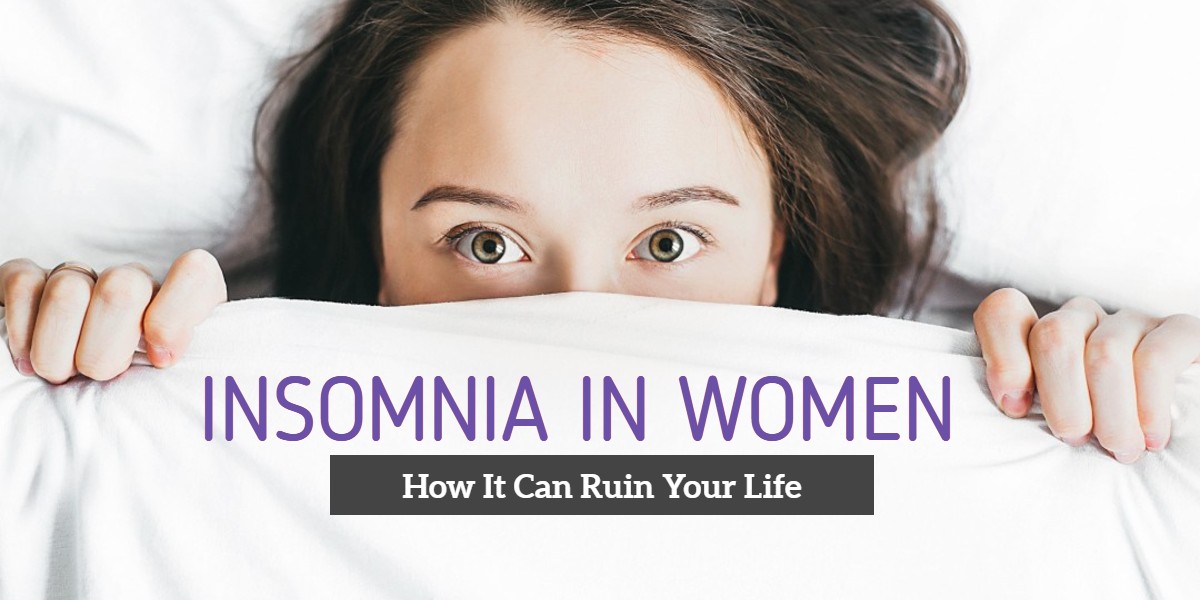

Prescription Medication for Insomnia- Sedative Hypnotics
Read more about this article...
Read the Full Feature →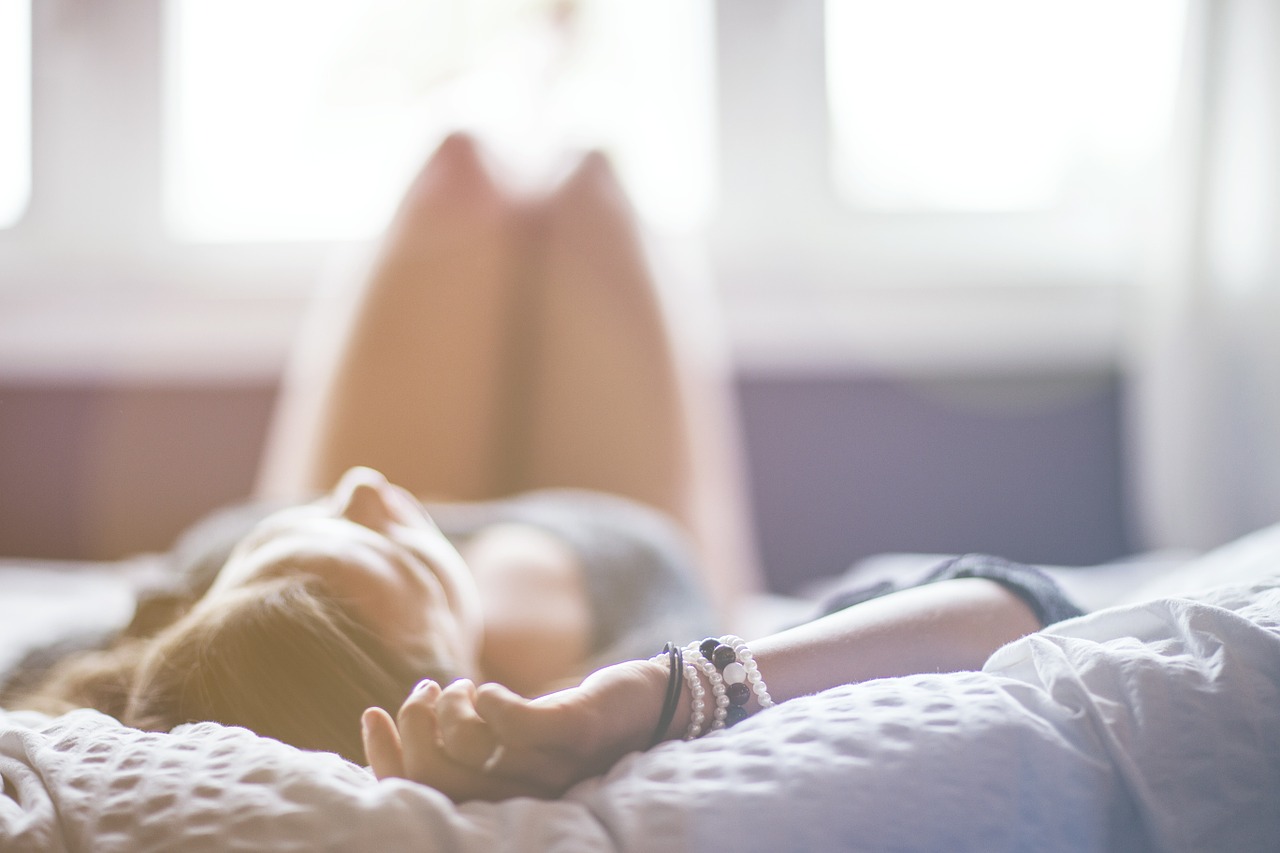
6 effective insomnia tips to help you get back to a normal sleep pattern
Read more about this article...
Read the Full Feature →